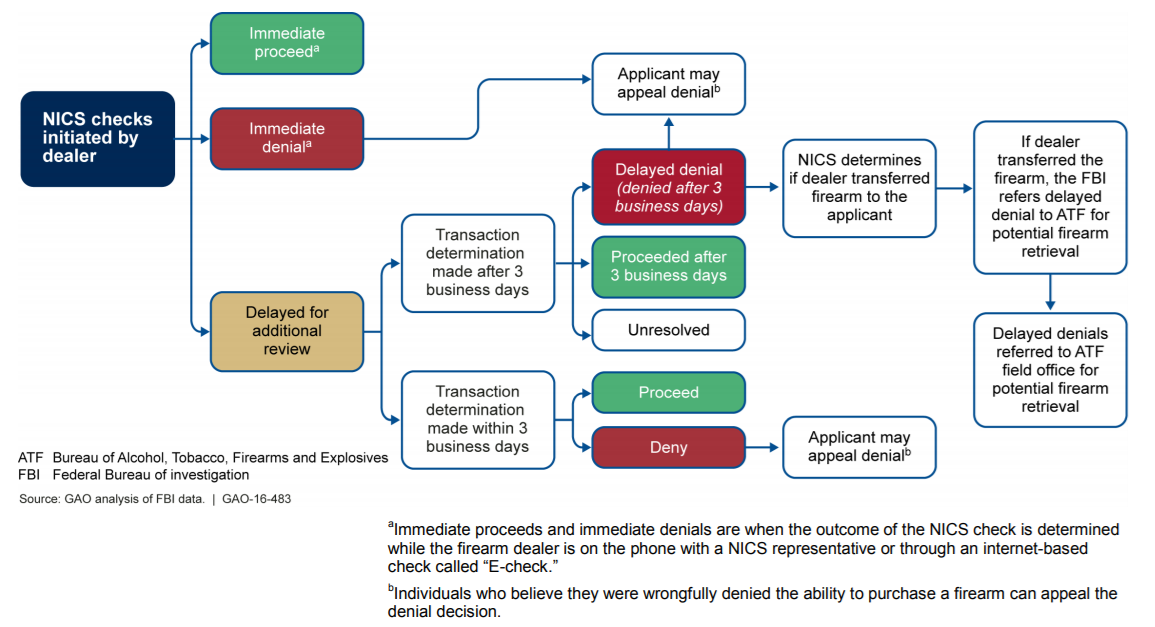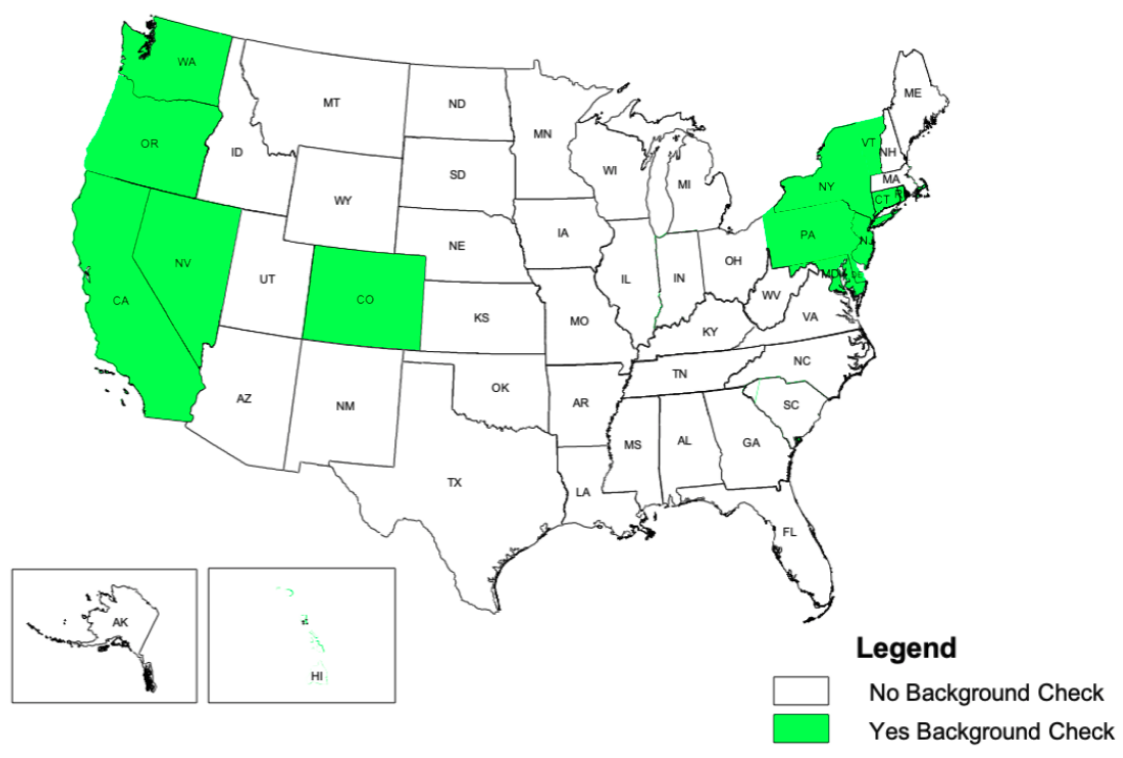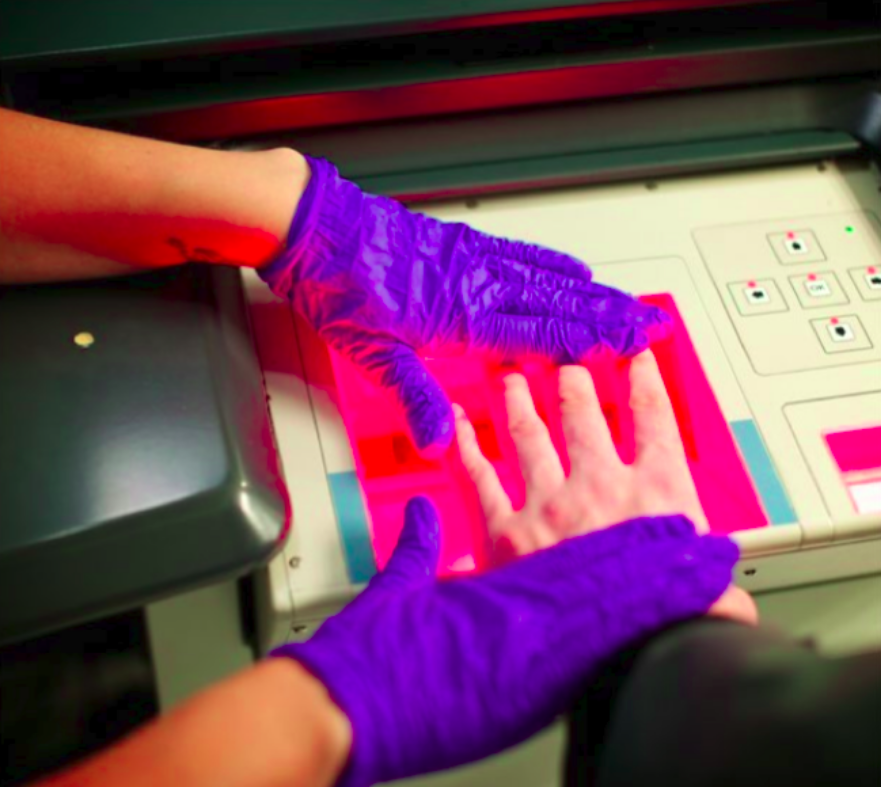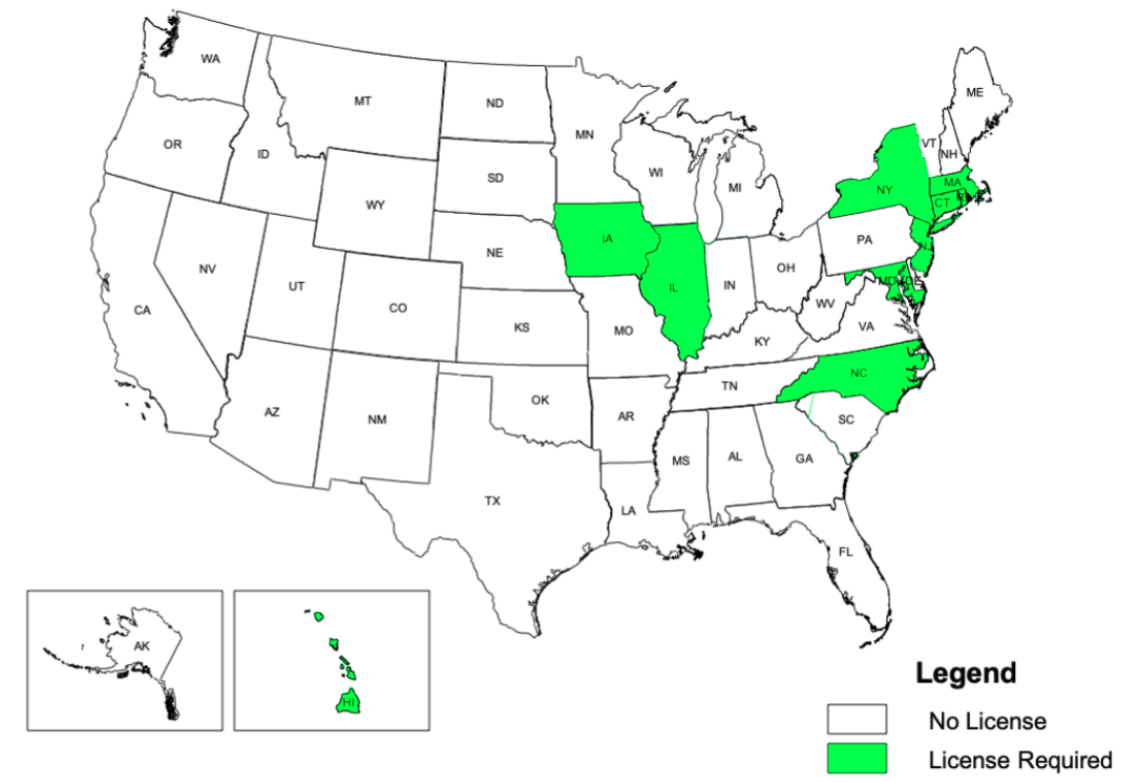This is the eighth post in a series about Reducing Gun Violence in the United States. The previous post described Mental Illness, Violence, and Laws.
In this post, I’ll explore two methods designed to keep guns out of the hands of people who are prohibited from owning them: background checks and purchaser licensing laws.
- For those who want to see the highlights without going through the data, skip right to the conclusions at the bottom of this post.
- The data in this post comes from several different sources, which I’ve linked in the references section at the bottom of this post for those who want to see the data for themselves or dive deeper.
Background Checks
The Brady Handgun Violence Protection Act of 1993 created the federal National Instant Criminal Background Check System, which enables federally licensed firearm dealers to conduct background checks for gun sales. These dealers are required by that law to perform a background check before proceeding with any gun sale.
When conducting a background check, sellers are often immediately alerted that a sale may proceed. Sometimes, sellers are immediately alerted that a sale is prohibited for any reason, or delayed if more time is needed to perform the background check.
In the case of a delay, law enforcement has three days to complete any additional checks, after which the sale may go forward if it does not have a decision, even if the sale would have been prohibited by law. If law enforcement later realizes that the sale should have been prohibited, it is obligated to find the purchaser and retrieve the firearm obtained.
Below is a flow chart of how the federal background check system works, starting from the left and moving to the right by following the arrows.
NICBCS Process for Purchasing a Firearm from a Dealer (source: GAO Gun Control)

In theory, this system should work fairly well. However, due to states and government agencies not always reporting records that might trigger a sale denial, gaps in records exist for individuals to which sales should be prohibited. These gaps can come from mental health records, criminal prohibitions, or other sources. As a result of these gaps, sales are sometimes made to individuals who would have been prohibited from owning a gun; and those individuals, on occasion, then use those weapons to commit violent acts.
States Requiring Private Sale Background Checks (source: Universal Background Checks)

While all sales of firearms by federally licensed dealers must go through background checks, only fourteen states require that private sales must also include a background check, such as individuals meeting through Craigslist or friend-of-a-friend.
Do background checks on firearms purchases have any effect?
Enforcing background checks for firearms sales have been shown to (sources: Firearm Trafficking, Reducing Gun Violence, Comprehensive Background Check Policies, Firearm Laws)
- reduce interstate trafficking of firearms
- serve as an important framework for other laws to screen individuals from purchasing guns
In particular, states with weak gun laws that did not require private sale background checks regularly have large exports of guns to states with strong gun laws. Universal background checks in all states would help reduce this.
However, background checks alone have not been shown to reduce rates of gun homicide.
Purchaser Licensing
Handgun purchaser licensing laws require that prospective handgun purchasers obtain a permit to buy a firearm from a state or local government before a purchase can be made. As part of applying for a license, applicants might submit a photograph, fingerprints, or a copy of a government-issued id. They may need to be interviewed by a law enforcement officer, and they may be required to show proof of completing a firearm safety training course.

States and local governments that have licensing requirements take thirty days on average to process the license application, which may involve a background check. States or cities may have access to more records that have not yet been submitted to the federal National Instant Background Check System yet, which increases the chance that a prohibited purchaser would be denied from being able to purchase a handgun.
States Requiring Licenses for Every Handgun Purchase (source: Universal Background Checks)

Only nine states require obtaining a license before purchasing a handgun, and the licensing varies:
- permits have varying expiration dates
- law enforcement’s capability to deny permits to qualified but dangerous applicants vary
- for example, denying a permit to an individual with an arrest record for anger issues but no convictions
- safety training requirements for prospective purchasers vary
Individuals committing gun crimes in states with purchaser licensing laws often use guns obtained from states with weaker licensing laws. Like the universal background check requirements described above, a strong body of evidence shows that handgun purchaser licensing laws are associated with fewer guns illegally moving across state lines from states with weak gun laws to those with strong gun laws.
Do purchaser licensing restrictions on handgun purchases have any effect?
Unlike universal background checks, handgun purchaser licensing laws reduce firearm homicide and suicide as well as prevent guns from being illegally diverted to criminals through dealers. A likely explanation for this is that direct interaction with law enforcement, a background check, and a built-in waiting period counteracts impulsive purchasers to harm oneself or others. Among the effects: (sources: Firearm Trafficking, Reducing Gun Violence, Initial Impact, Impact of Sales Laws, Association Between Law and Homicides, Effects of Changes, Effects of the Repeal, Evaluating Missouri, Association in Urban Counties)
- Connecticut’s 1995 licensing law (including in-person application, fingerprinting, and safety training) cut the firearm homicide rate by 40% and the firearm suicide rate by 15% after ten years
- Missouri’s licensing law was eliminated in 2007; the firearm homicide rate went up by 27% and the firearm suicide rate went up by 16% afterward
- In large urban counties, purchaser licensing laws are associated with 11% reductions in firearm homicide
Conclusions
Background Checks
- All firearm sales from gun dealers must go through the federal instant background check system
- In practice, this system is not perfect due to missing records from states or government agencies which would prohibit sales in some cases
- State background check laws address weaknesses in federal firearms law
- Only fourteen states require background checks between individuals (private sales)
- Background checks:
- reduce illegal gun transfers from states with weak gun laws to states with strong gun laws
- ensure that restrictions for purchasing and possessing firearms are enforced
- do not reduce rates of gun homicide
Purchaser Licensing
- Purchaser handgun licensing laws require prospective purchasers to obtain a permit before purchase
- May include direct interaction with law enforcement, fingerprinting, safety training
- Only nine states require purchasers to have a permit to purchase handguns
- Handgun purchaser licensing laws:
- Significantly reduce firearm homicide (between 11 – 40%)
- Reduce firearm suicide (~ 16%)
- Reduce illegal diversion of guns to criminals
Next up: Gun Dealer Oversight and Regulation
References
- GAO Gun Control – a 2016 GAO report on analyzing available data for improving background checks involving domestic violence records
- Universal Background Checks – a report from the Giffords Law center on universal background checks
- Firearm Trafficking – a 2009 study investigating the relationship between oversight of gun dealers and state regulation of private sales of handguns with rates of intrastate gun trafficking
- Reducing Gun Violence – a 2013 paper on informing policy on reducing gun violence overall
- Comprehensive Background Check Policies – a 2018 paper estimating the effect of the repeal of comprehensive background check laws
- Firearm Laws – a 2018 study designed to test the effects of firearm laws on homicide in large, urban U.S. counties
- Initial Impact – a 2017 study assessing the impact of Maryland’s Firearm Safety Act (FSA) of 2013 on indicators of diversion of handguns to prohibited persons
- Impact of Sales Laws – a 2015 study examining the effect of more restrictive state gun laws and regulations on the illegal diversion of guns to criminals
- Association Between Law and Homicides – a 2015 study to estimate the effect of Connecticut’s implementation of a handgun permit-to-purchase law in October 1995 on subsequent homicides
- Effects of Changes – a 2015 study evaluating how permit-to-purchase (PTP) laws for handguns could potentially reduce suicides by making it more difficult for persons at risk of suicide to purchase a handgun
- Effects of the Repeal – a 2014 study estimating the impact of Missouri’s 2007 repeal of its permit-to-purchase handgun law on states’ homicide rates
- Evaluating Missouri – a 2019 study of the effect of the repeal of Missouri’s permit-to-purchase handgun law on its firearm homicide rate
- Association in Urban Counties – a 2018 study designed to test the effects of firearm laws on homicide in large, urban U.S. counties
